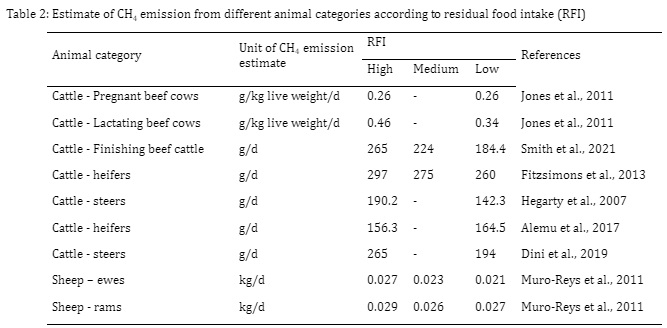Feeding efficiency of sheep as a strategy for mitigating greenhouse gas emissions
DOI:
https://doi.org/10.21708/avb.2023.17.2.11599Resumen
Climate change is a very relevant and worrying topic today and is present in the agendas of different spheres of society. High concentrations of greenhouse gases (GHGs) are released into the atmosphere, causing global temperatures to rise. In agricultural production, methane (CH4) is considered one of the highest GHG emissions, causing a negative impact on natural resources and accelerating climate change. In the coming years, with the increase in the world population, food production should be implemented in self-sufficient, quality, and sustainable production systems to meet the need for high consumption. The reduction in CH4 production is related to the better efficiency of energy use of the feed by the animals; therefore, the knowledge of the ruminal fermentation parameters, identification of the ruminal microbiota, and selection of more efficient animals, with lower consumption and greater weight gain, in addition to producing less GHGs like CH4, have a less negative impact on the environment and are economically viable. This review presents some aspects of selection for feed efficiency in sheep as a strategy to mitigate GHG emission and some techniques for measuring these gases.
Descargas

Descargas
Publicado
Número
Sección
Licencia
Derechos de autor 2023 Acta Veterinaria Brasilica

Esta obra está bajo una licencia internacional Creative Commons Atribución 4.0.
Autores que publicam na Acta Veterinaria Brasilica concordam com os seguintes termos: a) Autores mantém os direitos autorais e concedem à revista o direito de primeira publicação, com o trabalho simultaneamente licenciado sob a Licença Creative Commons Attribution que permite o compartilhamento do trabalho com reconhecimento da autoria e publicação inicial nesta revista. b) Autores têm autorização para assumir contratos adicionais separadamente, para distribuição não-exclusiva da versão do trabalho publicada nesta revista (ex.: publicar em repositório institucional ou como capítulo de livro), com reconhecimento de autoria e publicação inicial nesta revista. c) Autores têm permissão e são estimulados a publicar e distribuir seu trabalho online (ex.: em repositórios institucionais ou na sua página pessoal) a qualquer ponto antes ou durante o processo editorial, já que isso pode gerar alterações produtivas, bem como aumentar o impacto e a citação do trabalho publicado (Veja O Efeito do Acesso Livre).


 Esta obra está licenciada com uma Licença
Esta obra está licenciada com uma Licença 